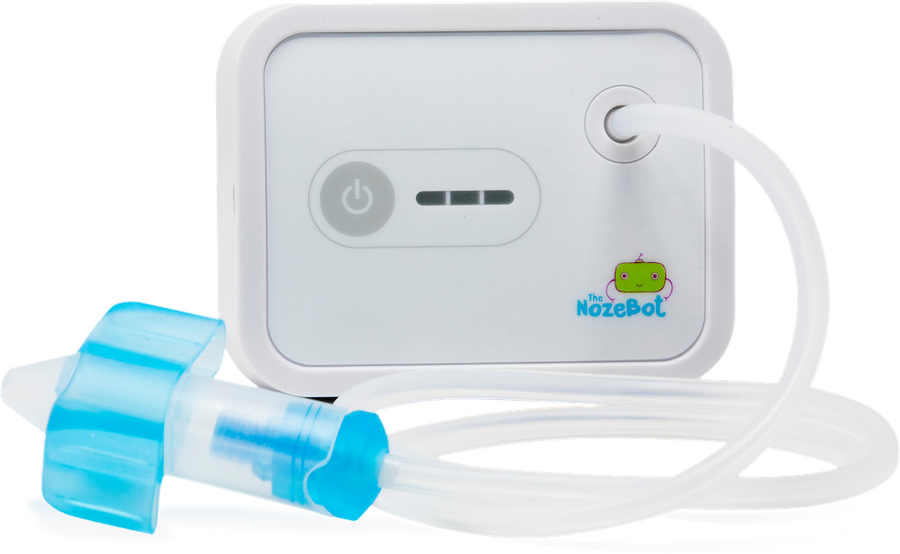Guest Post By Genevieve Kane, MSN, RN
The holiday season also coincides with the cold and flu season. However, while holiday gatherings with friends and family are fun, they are also where your little one may pick up a bug. And, if you have school-age kiddos, they may all share these germs when they return to school after holiday breaks.
The Dos and Don'ts of Fighting a Fever
If your little one is sick, here are a few key points to consider when fighting a fever.
Do Consider The Age of Your Child
A fever can indicate more serious problems in a young infant. Therefore, if your young one has a fever, it is important to consider their age when determining your plan to make them more comfortable.

Per Healthy Children:
- Young infants 12 weeks of age (3 months) or younger: bring your infant in to be seen for any fever of 100.4 degrees Fahrenheit or above.
- Children age 2 years and younger: talk with your pediatrician for fevers lasting 24 hours or longer.
- Children older than 2 years: touch base with your pediatrician for any fever lasting more than 72 hours (3 days).
Do Be Cautious With Medications
There are also differences in medication depending on the age of your child. For example, acetaminophen (also commonly known as Tylenol®) and ibuprofen (also commonly known as Children's Motrin® and Advil®) have different recommendations for dosing based on the child’s age and weight.
Generally, you should ask your pediatrician’s office for a dosing chart to ensure you are giving the right amount. Too much of these medications can make your child sick and cause additional problems.
Also, ibuprofen is generally not given to infants under 6 months. If your child is under 6 months, call your pediatrician to ask for their advice.
Do not give aspirin to a young child or infant to bring down a fever, per Nemours Health.
And lastly, regardless of the child’s age, using a syringe to measure a dose is essential if you are giving a liquid version of medications. Kitchen measuring devices and measuring cups are inaccurate, and young children have become very ill from parents and caregivers measuring medications with these tools.
Do Consider Your Child’s Symptoms
No parent likes to see their child sick. But, depending on how sick they are, it can be alarming. If you notice expected symptoms, such as flushing and feeling uncomfortable, Nemours Health provides several treatments you can try at home to keep your child comfortable:
- Liquids to increase fluid intake and keep the child hydrated (if you are concerned about hydration in an infant, consult your pediatrician).
- Allow your child to eat if they are hungry, and don’t force food.
- Provide lightweight clothing and light blankets if your child uses them, so the child does not overheat.
- Allow for plenty of rest.
- Give Tylenol and ibuprofen as appropriate.

However, if you notice the following symptoms in your child, do seek medical advice, per Nemours Health:
- Your infant is 12 weeks (3 months) or younger, with a fever of 100.4 or greater.
- You notice a rash developing.
- Your child is refusing liquids or experiencing lasting vomiting or diarrhea.
- You notice signs of dehydration in your child such as peeing less, no tears when crying, or they seem less alert.
- Your child has medical conditions, such as sickle cell disease, cancer, or a heart condition.
Pro Tip: If you aren’t sure if your child needs to be seen, most insurance providers and many Children’s hospitals have nurse lines that are free of charge to use. Ideally, check with your insurance and closest Children’s hospital to find the number before you’re in a position where you are worried and need to.
A Few Don’ts With Fever Care
When caring for a child with a fever, there are a few don’ts to consider. There are also old myths and wives tales to ignore.
- Do not give aspirin to a child unless under the direction of a healthcare provider.
- Do not try to cool your child with rubbing alcohol, per Nemours Health.
- Do not expect to receive antibiotics from your pediatrician, unless there is suspicion of a bacterial infection such as strep throat. Many fevers happen because of viral infections and antibiotics don’t work against viruses.
- Do not try to starve a fever per Harvard Health. This is an old myth. While you shouldn’t force your child to eat if they aren’t hungry, limiting your child’s nutrition won’t help them get better.
You Know Your Child Best
And remember, regardless of all the other advice you may get out in the parenting world, you know your child best. If you have concerns or feel your child needs to be seen, it is always appropriate to reach out to your pediatrician or take your child in to be seen.

If you enjoyed this article, you will also love:
- Why Most Babies Can't Breathe Through Their Mouth
- How to Maximize Fluid Intake When Your Little One Is Sick
- What Kind of Cold Medicine Should You Avoid When Breastfeeding?
- Toys Children with Down Syndrome Would Love to Be Gifted This Holiday Season
- What Parents Need to Know About Wheezing
Genevieve Kane, MSN, RN, is a mother of four and a registered nurse with a background in pediatrics. When she's not working, you can find her cooking up tasty family dinners or keeping up with her kids on a hiking trail in her home state of Colorado.
The Nozebot is a battery-powered suction device designed to clear nasal congestion in babies and children.


